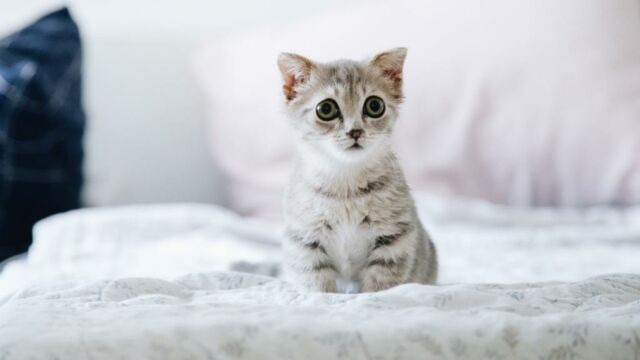Cat neutering is a simple surgery that helps you get rid of a lot of pet-related problems such as spraying and unpleasant smell, attempts to escape for mating, loud vocalising, and getting into fights. It is a responsible choice for cat population control. Neutering is beneficial for your feline’s health as the removal of the testicles eliminates testicular cancer risk and reduces prostate fears.
Discover our latest podcast
Kittens that are operated between the ages of 8 weeks to 6 months will have fewer postoperative complications due to the size and development of the reproductive organs, PetMD writes.
But how does the procedure impact your cat’s behaviour? Here is what to expect.
Right after the surgery
The cutest cat in a cone you ever did see pic.twitter.com/xMVBv2ptTw
— Madison (@Lilberger14) September 2, 2022
Cats may be a little drowsy for a few hours after the surgery. The anaesthetic can also cause excessive drooling and a lethargic look. It is best to give your pet some space to feel themselves again, which can take up to 24 hours. Let your kitten take it cool for a day or two to allow the internal wounds to heal.
Simple neuters take 5-7 days to fully recover. For abdominal surgery, it is usually a couple of weeks. Most cats will wear a cone for about a week after the procedure to avoid licking the incision.
If your kitten seems unusually quiet or dull some days after the surgery, or if there is any bleeding or excessive licking, bring them to the vet before your scheduled follow-up visit.
Will my cat continue spraying post-surgery?

Usually, if cats are neutered around the time they reach sexual maturity—between the ages of 5-6 months—they will not spray. Unfortunately, after 1 year of age, your cat will likely continue to spray due to testosterone levels in the body and chronic marking behaviour.
The good news is once a cat is neutered at any age, this spraying behaviour typically decreases significantly.
Post-neutering care

Your cat should be able to pee and poop after neuter surgery. Not urinating during the first 24 hours after can be a very serious complication and calls for urgent contact with the vet.
Keep in mind that sometimes cat sand can get stuck to the post-surgery incision, so the owners are often recommended to use torn newspaper in the litter box for a couple of days after the treatment.
Though it is normal for cats to have some constipation after the operation, not being able to poop 48-72 hours post-neutering can be a sign of dehydration and needs to be addressed with the vet as soon as possible.
Do not give over-the-counter laxatives, supplements, or enemas to cats. Many of these products are toxic and can cause serious and life-threatening side effects.
Will neutering change my cat's personality?

Neutering reduces testosterone levels in cats and limits the behaviours associated with them, but it doesn’t change your pet’s personality. Once they fully recover from the surgery, they get back to their normal selves minus stinky spraying, mate-searching craze, and occasional aggression.
With more free time on its paws, your fluffy is more likely to engage in cuddles and petting. They might become more affectionate towards you and happy at home.
Sources used:
- PetMD: 'Cat neutering aftercare: Everything you need to know'
- International Cat Care: 'Neutering your cat'
- Hepper: 'Are Male Cats More Affectionate After Neutering?'
Read more:
⋙ Why do cats knock things over? Here are 3 reasons
⋙ These are 3 of the biggest cat breeds in the world (VIDEO)















